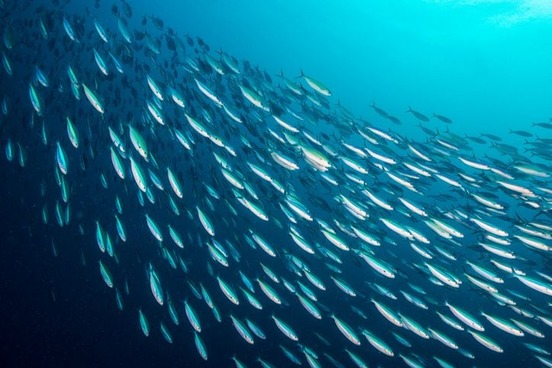
Common Collectives
Ask someone about collective nouns and they're liable to holler "a murder of crows!" or "an exaltation of larks!" While the dramatic collective nouns are the ones that get the most attention, we use a number of collective terms every day. But what distinguishes a herd from a flock, or a swarm from a colony? And what do you call a group of fish?
The fish—true fish, at any rate—are the easiest to classify. They come in schools. No, not that school: this particular word comes from a Middle Dutch word that refers to a group of animals together. Fish also come in shoals, which comes from an Old English word that means "multitudes." If it's a group of one type of aquatic mammal—whales, dolphins, porpoises, seals—then they tend to gather in pods.
But once we get out of the sea, the rules for what to generically call groups of creatures get more complicated. Both herd and flock are used of animals (and usually farm animals) that are domesticated and kept under the care of a person. In this particular use, herd tends to be used of cattle or other bovine animals, and flock tends to be used of sheep and goats. But herd and flock are also used of game animals in set phrases—a herd of deer; a flock of geese. That's just current usage, too. Historically, a herd was any group of animals traveling or eating together, as was a flock, and this jumble continued on into the modern era. Herd, a word most people associate with deer, horses, or cattle, has been used of porpoises, seals, and birds, and flock, a word we now associate with sheep and birds, has been used of elephants, lions, camels, and pigs.
Perhaps swarm is an easier collective noun to get one's hands on. Its earliest uses were for great assemblies of bees on the wing, and indeed swarm of bees is still common. When applied to other creatures, swarm tends to be used of other insects, and particularly ones that fly—locusts, fireflies, cockroaches. But that's not to say that swarm isn't applied to other creatures: a swarm of eels was once common enough to merit mention in our Unabridged Dictionary.
Colony tends to be used of specific populations of animals that are settled in a place—a colony of rabbits or bees, for instance. But not all social animals come in colonies. Dogs come in packs; elephants in herds; people in a variety of conglomerations. In the end, there is no cut-and-dried rule for how to refer to a particular group of creatures. And this may be why we love the more fanciful collective nouns so much.
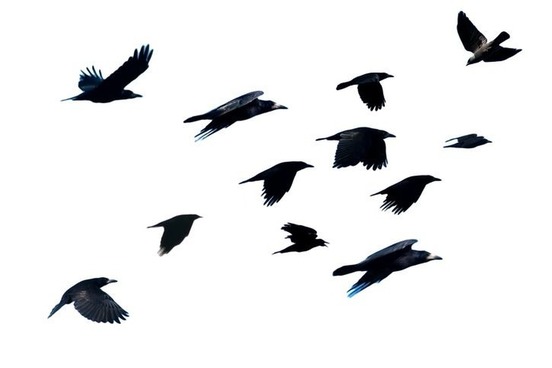
A Murder of Crows
One of our best-known (and easily meme-able) collective nouns is a murder of crows. Unlike many collective nouns, this sense of murder even has enough evidence in print to merit entry into our dictionaries.
This use of murder goes back to the 1400s. There was, at that time, something of a fad for "terms of venery," or names for groups of game animals. Treatises on hunting and hawking were very popular, and whenever the subject appeared in the 15th century, so too did lists of venery terms. Crows have been grouped in murders since the late 1400s—though no reason for the name was given. Etymologists suggest that the association of crows and ravens with death might have led to the name, but the writer of the manuscript where a murder of crows first appeared gives no hint.
Though there was a rage for terms of venery, most of them fell out of use in the 16th century. Murder of crows was one of them—but it was rediscovered in the early 20th century. Authors then posited that the crowd of crows was called a murder because of the tremendous noise they make.
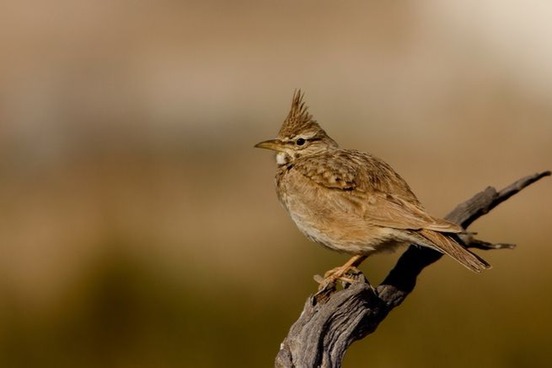
An Exaltation of Larks
Fans of collective nouns are familiar with an exaltation of larks, which was the title of a book by James Lipton on collective nouns. But this particular collective noun goes back to the 15th century, and comes from one of the most famous books on collective nouns in print.
The Book of Saint Albans, originally printed in 1486, was a collection of advice and information on hawking, hunting, and heraldry. It was the first book in England to be printed in more than two colors (six were used in the heraldry section), and authorship of the sections on hunting and hawking have been attributed to Dame Juliana Barnes (more often called Berners), the prioress of an abbey near St. Albans, Hertfordshire. Berners was likely brought up at court and evidently retained a taste for hawking and hunting after she took orders. The Book of Saint Albans contains a list of many terms of venery at the end of the treatise on hunting, and while many of them are so familiar as to be unremarkable—a gaggle of geese, a pride of lions—some are rather fanciful. Larks get two terms of venery in Berners' book: exalting and exaltation. Here are some other flights of fancy from The Book of Saint Albans:
an unkindness of ravens
a clattering of choughs
a murmuration of starlings
a charm of goldfinches
Sometimes the collective noun applied to a particular bird was a marker of rank. Berners gave a list of which birds were suitable for hunting based on one's station in life, and the names for those groups were also class-specifics. So hawks came in casts, for two kept in a nobleman's hawking tower, or leashes, for three kept in a tower. Cast was used to mark technique: Berners notes that one should always cast a hawk at prey, and never let it fly. And a leash of hawks was modeled on the name for a group of hunting greyhounds, another animal favored by the gentry.
Birds that were unremarkable or were hunting birds used by lower classes were grouped in flights. A cast of hawks denoted nobility; a flight of goshawks indicated the hawks in question were owned by a yeoman.
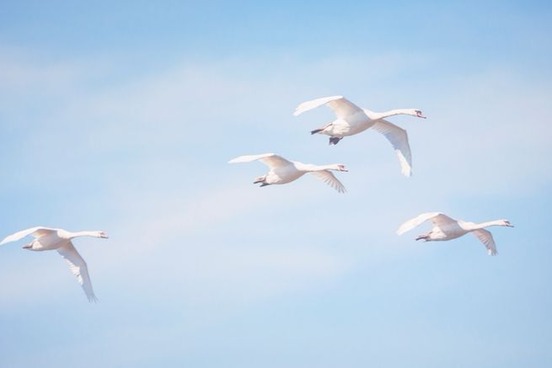
Geese, Ducks, Swans, and Their Location
One of the surprising things about the lists of terms of venery is that they sometimes give different names to the same animal depending upon where they are.
Geese seem to be the birds that get the most differentiation. When on the ground, geese come in flocks, like many birds, and in gaggles, a word which is specific to geese and comes from the Middle English verb gagelyn, which means "to cackle" and is likely imitative in origin. A skein of geese is a group of geese in flight—and yes, that skein is related to the yarn skein.
Ducks on the water are called a paddling (for obvious reasons) and a raft, as they float together like a raft. There are no specific terms for ducks on the ground or in the air, though another collective noun for groups of ducks we see in print is badelyng—a corruption of paddling.
A group of swans, also once game birds, is a wedge when they're in flight, likely because of the shape a group of swans takes in flight. And while we can call a group of swans a bevy, a herd, a game, or a flight, they can only be a bank when they're on the ground.

A Melody of Harpers and a Poverty of Pipers
What is surprising about The Book of Saint Albans is not that it contains words for groups of game animals, but that it contains a number of terms that aren't about the hunt at all: collective nouns for groups of people. The inclusion of these fanciful names for groups of people hints that perhaps collective nouns are founded as much in whimsy as in fact. A quick survey of the existing literature of the era shows that collective nouns like melody (for harpists) and poverty (for pipers) were only in use in these fanciful lists.
And this remains a problem, lexicographically speaking. Language lovers adore collective nouns, but most of them don't meet the criteria for entry. For lexicographers, a word hasn't fully entered the language until it's used consistently in running prose without any sort of parenthetical explanation or gloss, and many of these terms haven't. How often does one need to refer, for instance, to a group of brewers or butchers? And collective nouns for hermits seem to be magnificently missing the point.
That's not to say that lexicographers are somehow biased against these terms. By all means, resurrect them and use them as much as possible. (But pity the poor pipers, perhaps, and choose a less stingy noun than poverty.) Here's a list to get you started from The Book of Saint Albans:
a feast of brewers
a goring of butchers
an observance of hermits
a school of clerks
a doctrine of doctors
a tabernacle of bakers
a prudence of vicars
a state of princes
a congregation of people
a diligence of messengers
a discretion of priests
an execution of officers
an eloquence of lawyers
a drunkenship of cobblers
a proud showing of tailors
a skulk of thieves
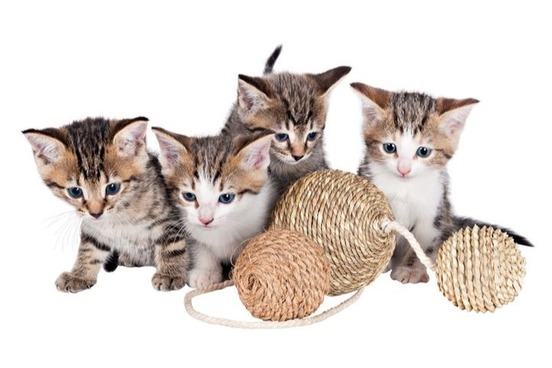
The New Collective
The coining of collective nouns didn't end in the 15th century; the penchant for wordplay never goes out of style. Here are some of our favorite more modern collectives:
a tuxedo of penguins (for their striking coloration)
a bask of crocodiles (for their sunning habits)
a destruction of cats (no explanation necessary)
a troop of baboons (but a barrel of monkeys and a band of gorillas)
a tower of giraffes
a parliament of owls
a cackle of hyenas
a smack of jellyfish
an ambush of tigers
a wisdom of wombats





